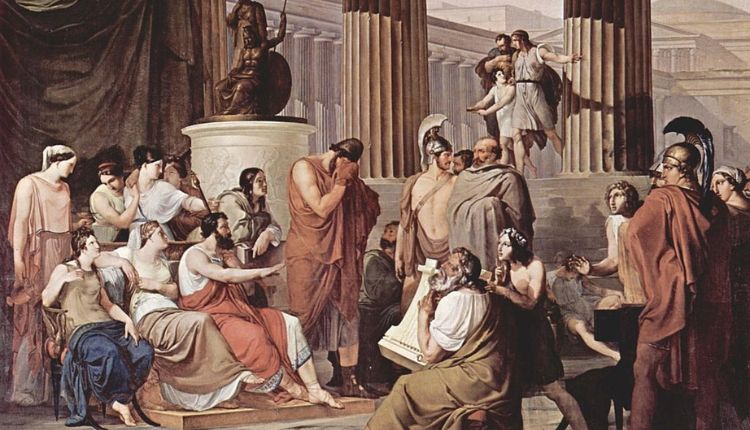which excerpt from the odyssey best shows that the ancient greeks greatly valued the idea of home?In the realm of classical literature, few works hold as much significance as Homer’s “The Odyssey.” This epic poem not only serves as a testament to the heroic journey of Odysseus but also offers profound insights into the values cherished by the ancient Greeks. One theme that resonates throughout the narrative is the profound significance placed on the concept of home. In this exploration, we delve into the specific excerpt from “The Odyssey” that encapsulates the profound value the ancient Greeks attached to the idea of home.
Table of Contents
Navigating the Epic Landscape
Odysseus’s Longing for Home
In Book V of “The Odyssey,” we witness Odysseus trapped on the island of Ogygia, yearning to return to his homeland of Ithaca. The powerful excerpt that encapsulates the Greeks’ deep-seated appreciation for home is when Odysseus, after facing numerous challenges, declares, “By now, I long to be back home, yearning for the sight of home.” This poignant moment illustrates the central role that the concept of home plays in the psyche of the ancient Greeks.
Penelope’s Faithful Vigil
Parallel to Odysseus’s struggles, we find Penelope, his faithful wife, holding onto the hope of his return. Her unwavering dedication to Odysseus and her constant weaving and unweaving of the shroud for Laertes symbolize the enduring spirit of the Greek home. This domestic scene paints a vivid picture of loyalty, commitment, and the intrinsic connection to one’s familial abode.
Ancient Greek Values Reflected in Home
Xenia: The Sacred Guest-Host Relationship
The ancient Greeks held the concept of xenia in high regard, emphasizing the sacred relationship between hosts and guests. This cultural norm is reflected in “The Odyssey” as various characters, including Odysseus, navigate through foreign lands and interact with different hosts. The importance placed on hospitality underscores the interconnectedness of the Greek home with societal values.
Oikos: The Household as the Foundation
The term oikos, representing the Greek household, encompasses not just the physical dwelling but the familial and social structure. The Greeks saw the home as the cornerstone of their society, where values, traditions, and lineage were preserved. The sentiment expressed in “The Odyssey” echoes this sentiment, portraying the protagonist’s relentless pursuit to reunite with his oikos.
The Enduring Legacy of Home in Modern Context
Drawing Parallels to Contemporary Notions of Home
While “The Odyssey” is an ancient epic, its themes transcend time and continue to resonate with modern audiences. The profound longing for home, the values associated with familial bonds, and the importance of a stable household are universal concepts that find echoes in today’s society.
Implications for the Modern Reader
As we dissect the excerpt from “The Odyssey” that exemplifies the Greeks’ reverence for home, it prompts us to reflect on our own understanding of the concept. In a fast-paced world, where individuals often find themselves in perpetual motion, the ancient Greek perspective offers a poignant reminder of the enduring importance of home as a sanctuary and a source of identity.
Conclusion
In conclusion, the excerpt from “The Odyssey” serves as a literary time capsule, preserving the ancient Greeks’ profound appreciation for the idea of home. Through the trials of Odysseus and the steadfastness of Penelope, we glimpse into a culture where the home was not merely a physical space but a bastion of values and societal foundations. As we navigate the complexities of the modern world, the echoes of the ancient Greek understanding of home resonate, urging us to reflect on the timeless significance of this cherished concept.
